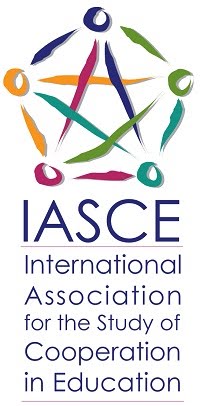Cooperative Learning and Responsible Citizenship in the 21st Century
Conference Workshop Abstracts
Developing Skills for Co-operative Learning in Latvian Teacher Education
Facilitator: Indra Odina, Latvian Association of University Lecturers for Co-operation in Teacher Education, Riga, Latvia
Summary:
This presentation examines five years of implementing co-operative learning in teacher in-service education in Latvia. The action research was carried out to develop teachers’ social skills through co-operative, collaborative, and transformative learning. The results obtained reveal that the implementation of new contents takes a long time, but the implementation of new attitudes is a never-ending journey.
Effect of Co-operative, Individualistic and Competitive Instruction on Achievement and Class Climate
Facilitator: Ghazi Ghaith, Department of Education, American University of Beirut, Beirut, Lebanon
Summary:
A report describing the results of an investigation into the relative efficacy of co-operative, individualistic, and competitive forms of instruction in promoting achievement in English as a Foreign Language (EFL) and learners’ perceptions of class climate such as fairness of grading, class cohesion, school alienation, and social support.
Distributed Cognition and Co-operative Learning
Facilitators: Eunju Yun, University of Illinois at Urbana-Champaign, Urbana, IL, USA and Yonggi Jo, Taegu National University of EducationTaegu, South Korea
Summary:
This paper explores a rationale for co-operative learning that is in contrast to the current dominant rationale - the resemblance to real-life situations outside of schools rather than its intra-school effects. The concept of ‘distributed cognition’ is referenced as a major theoretical framework.
One and All in CALL: Learner-Moderator-Researcher
Facilitator: Claudia Finkbeiner, Teaching English as a Foreign Language Department, Kassel University, Kassel, Germany
Summary:
Focus on a research study that is situated in a collaborative learning setting in the context of a computer-assisted foreign language training class in a German university. The research is based on the LMR-Plus Model. The LMR-Plus Model is a co-operative method employed at university level with teachers in training to be English as a Foreign Language instructors.
A Co-operative Approach to Service (Community) Learning Skills
Facilitator: Daniel MacInnes, Department of Sociology and Anthropology, St Francis Xavier University, Antigonish, Nova Scotia, Canada
Summary:
In service (community) learning placements, university students often benefit more than the voluntary agency they serve. To further develop service learning, this paper proposes 1) a comparison of co-operative learning theory with the principles of the Antigonish Movement, and 2) an exploration of methods to better realise co-operative learning in service learning practices.
Effects of Group Investigation on Academic Achievement and Motivation of High- and Low-ability Students in Singapore Secondary Schools
Facilitators: Ivy Geok-Chin Tan, Humanities and Social Studies Education Academic Group, National Institute of Education, Nanyang Technological University, Singapore; Christine Kim-Eng Lee, Humanities and Social Studies Education Academic Group, National Institute of Education, Nanyang Technological University, Singapore
Summary:
An experiment conducted in Singapore secondary schools sought to evaluate the effects of the Group Investigation method of co-operative learning versus the effects of regular instruction on students’ academic achievement and on their motivation to learn.
Language Learning Through Co-operative Learning Tasks: Problems and Dilemmas AND The Cycle of Teaching and Learning: Co-operative Learning in the University Teacher Education Classroom
Facilitator: Gertrude Tinker Sachs, Department of English and Communication, City University of Hong Kong, Hong Kong
Summary:
This presentation reports the results of a three-year investigation of the adoption and adaption of CL in three primary schools in Hong Kong. The interplay of task design and students’ performance and reactions as well as a critical examination of the co-operative learning techniques used and students’ cultural responses will be made.
In the socio-cultural context of learning English as a second/foreign language in Hong Kong, what does co-operative learning have to offer students? The results of a three-year study in three primary schools with implications regarding the cultural appropriateness of co-operative learning and how task design can impede or facilitate language learning.
Study of an Interdisciplinary Curriculum by Means of Group Investigation and 9th Grade Students’ Perception of Quality of Life in School
Facilitator: Hanna Shachar, School of Education, Bar Ilan University, Israel
Summary:
The effect of interdisciplinary curriculum with the Group Investigation method versus traditional teaching on 9th grade students’ perception of quality of life in their school was examined. Results show that in the traditional method, the gap between high and low achievers regarding their perceptions increased whereas this gap almost disappeared in the experimental classrooms.
Role of Mathematical Tasks in Small Group Learning
Facilitators: Pasi Sahlberg, Director, Centre for School Development, Faculty of Education, University of Helsinki, Helsinki, Finland and John Berry, Director, Centre for Teaching Mathematics, University of Plymouth, Plymouth, Devon, UK
Summary:
A considerable body of research has focused on the importance of teaching a multiple representational view of mathematics: numerical, graphical, and symbolic. This session will demonstrate, through several specially designed tasks, how co-operative learning methods lend themselves to developing such a view of mathematics among students.
Assessing Group Products: The Neglected Dimension in Co-operative Learning
Facilitator: Elizabeth G Cohen, Professor Emerita, School of Education, Stanford University, Stanford, CA, USA
Summary:
Presentation will show how groups can use evaluation criteria to assess their own products - such as skits, models, or presentations. Research results demonstrate how group products form a causal link between self-critical group process and group and individual academic achievement in social studies. Evaluation criteria prove to be a useful tool for students, teachers, and researchers.
Active Citizenship: From Local to Global
Facilitator: Clive Belgoenne, Manchester Development Education Project
Summary:
What is 'active' citizenship? Why get young people involved? How do you get young people involved? Barriers & opportunities - Practical strategies - Links across the curriculum and to initiatives locally and globally - Useful resources
Learning Biology in Small Groups: Academic Achievement and Classroom Learning Environment
Facilitator: Reuven Lazarowitz, Department of Education in Science and Technology, Israel Institute of Technology, Haifa, Israel
Summary:
This session describes a study in which three biology topics were implemented, with students 12-18, using ‘peer tutoring in small groups’. Pre and post assessment of academic achievement and the classroom learning environment showed that, in the experimental group, students achieved higher scores and expressed more positive attitudes towards the classroom learning environment.
INCLUSIVE - an International Project using Co-operative Learning for and in Inclusive schools
Facilitator: Pavla Polechova
Summary:
Not available.
New Technologies for Inter-Cultural Learning
Facilitator: Paul Whittaker, Director, Institute for Technology and Enterprise in Society, Palacky University, Olomouc, Czech Republic
Summary:
The paper will describe ways in which new technologies, particularly the www, are being used to support people engaged in learning about another culture. Particularly, by increasing communication between people from different cultures prior to student/learner exchanges. The presentation will concentrate on the way that these have been developed in practice.
Professional Development and Effective Group Work for College Teachers
Facilitator: Celeste Brody, Instructional Dean, Central Oregon Community College, Bend, Oregon, USA
Summary:
When organising effective learning opportunities for college and university level teachers, it is important to consider the different demands of disciplines, the teaching experiences of the faculty, availability of organisational support, plus what preconceptions the faculty themselves bring to group work. Based on several years working with college and university faculty, Brody shares concepts and approaches developed to teach the use of group work for university level education.
Multiple Representations in Small Group Mathematics Learning
Facilitators: John Berry, Director, Centre for Teaching Mathematics, University of Plymouth, Plymouth, Devon, UK and Pasi Sahlberg, Director, Centre for School Development, Faculty of Education, University of Helsinki, Helsinki, Finland
Summary:
A considerable body of research has focused on the importance of teaching a multiple representational view of mathematics: numerical, graphical, and symbolic. This session will demonstrate, through several specially designed tasks, how co-operative learning methods lend themselves to developing such a view of mathematics among students.
How Well Does Co-operative Learning Travel?
Facilitator: Yael Sharan, Trainer, Consultant and Author, Tel Aviv, Israel
Summary:
The increase in in-service programmes in co-operative learning all over the world calls for careful consideration of the essential elements of co-operative learning and of ways to present them in different countries. Participants will 1) explore the elements they value as essential for qualitative understanding of co-operative learning; 2) design several ways of presenting these elements to ensure systematic and effective education for teachers in different countries and in different settings.
Co-operative Learning in Cross-Disciplinary Contexts (English-Sports-Education)
Facilitators: Indra Odina, Latvian Association of University Lecturers for Co-operation in Teacher Education, University of Latvia, Riga, Latvia and Ilze Mikelsone, Latvian Association of University Lecturers for Co-operation in Teacher Education, University of Latvia, Riga, Latvia
Summary:
This experiential session examines well-developed, co-operative learning strategies that can be applied in different content areas, different disciplines, and different developmental stages.
Meeting the Needs of Diverse Learners Through Bridging to Learning Styles in a Co-operative Learning Classroom
Facilitator: Sally Winterton, Department of Elementary Education, West Chester University, West Chester, PA, USA
Summary:
Participants will be introduced to learning styles, will informally identify their own style, and will gain knowledge of strategies for bridging to various styles. Research findings regarding styles in various ethnic groups will be explored and participants will work in groups to develop and share a learning activity that meets various stylistic needs.
Co-operative Learning Structures – Part of Any Lesson
Facilitator: Spencer Kagan, Kagan Publications and Professional Development, San Clemente, CA, USA
Summary:
Simple instructional strategies - structures - make co-operative learning part of any lesson at any grade level with no special preparation. Structures embody four basic principles of co-operative learning: Positive interdependence, Individual accountability, Equitable participation, and Simultaneous interaction (PIES). Participants experience and process structures like Rally Robin, Timed Pair Share, Rally Coach, Pairs Compare.
Reading Alone Together: Enhancing Extensive Reading Via Co-operative Learning
Facilitator: George Jacobs, JF New Paradigm Education, Singapore
Summary:
Extensive reading (ER) involves students doing large quantities of reading. Adding co-operative learning to ER can encourage students to read more and to think more deeply about what they read. This presentation explains why we should combine ER with co-operative learning. Participants will take part in relevant activities.
To learn more about these ideas, please see:
Jacobs, G. M., & Gallo, P. (2002, February). Reading alone together: Enhancing extensive reading via student-student cooperation in second-language instruction. Reading Online, 5(6). Available:http://www.readingonline.org/articles/art_index.asp?HREF=jacobs/index.html
The Open Space Technology Process: An Environment for Self-motivation, Group Synergy, and Innovative Solutions
Facilitator: Mark Brubacher, Toronto, Canada
Summary:
Open Space is a loosely but carefully structured process which encourages participants to create their own agenda and develop co-operatively generated solutions to common concerns. It is particularly powerful when nobody has preconceived answers and when everybody approaches complex questions and challenging issues in creative and productive ways.
Co-operative Learning Groups and Portfolio Evaluation in Teacher Education
Facilitator: Anna M Donnelly, Washington College, Chestertown, MD, USA
Summary:
Co-operative/collaborative learning forms the framework for a constructivist, undergraduate teacher certification programme. An experimental approach to assessing, evaluating, and reporting learning using co-operative strategies in conjunction with portfolio development will highlight this review of selected co-operative learning applications used in our programme.
Socially Conscious Co-operative Learning: Teaching for Social Justice
Facilitator: Mara Sapon-Shevin, Professor of Inclusive Education, Syracuse University, Syracuse, NY, USA
Summary:
Co-operative learning can be both an effective pedagogy and a compelling philosophy and world view. It can be used to teach and address issues of equity, justice, racism and peace and can be linked to broader social issues. In this workshop participants will experience activities that embody Socially Conscious Co-operative Learning.
Food for Thought
Facilitator: Linda Nixon, Area Manager, Suffolk Education Business Partnership
Summary:
An introduction of ‘Food for Thought’, a new mathematics resource for Key Stage 3 pupils. The resource uses neighbourhood Co-op shops as a context for learning, encouraging pupils to use their local community as a resource. Various aspects of the pack meet the citizenship requirements for KS3 including an explanation of ‘dividend’!
Team and Player Development in the Context of a Canadian Youth Soccer Academy
Facilitator: Harry Hubball, Department of Curriculum Studies, Faculty of Education, University of British Columbia, Vancouver, BC, Canada
Summary:
Concepts, theoretical frameworks, and instructional/coaching strategies that enhance co-operative learning and responsible citizenship - within the context of team and player development in a youth soccer programme - will be explored with the help of an interactive format, group work, and video clips.
Active Participation in Decision Making through Student Councils
Facilitators: David Bone, Director, School Councils UK
Summary:
The workshop will focus on the notion of young people in primary, secondary and special schools actively participating in decision-making processes. We will define what active participation is and how we can establish structures to ensure it happens effectively. We will discuss circle time and classroom councils, defining them as the foundation stones for all student councils. We will learn about how to set up and maintain an effective school council.
Building the Foundations
Facilitator: Ros Wilson, Kelsall Avenue Nursery School, Blackburn with Darwen LEA, Blackburn, Lancashire, UK
Summary:
The taller the building, the firmer the foundations have to be, this also applies to the building of responsible citizens and co-operative people.This workshop will explore ways in which these foundations are laid with young children and their families.
Co-operative Learning and Character Development
Facilitator: Spencer Kagan, Kagan Publications and Professional Development, San Clemente, CA, USA
Summary:
Three dimensions of character development are distinguished: Personal; Relationship; and Community virtues. Simple structures foster virtues in any lesson. Participants experience and process structures like: Paraphrase Passport; Pass-N-Praise; Corners; Circle the Sage; Team Interview; Agree-Disagree Line Ups; and Team Statements, which foster respect, understanding, kindness, tolerance, leadership, courage, and integrity.
Co-operative Models in the Education System
Facilitator: Mervyn Wilson, Chief Executive and Principal, Co-operative College, Manchester, UK
Summary:
In recent years there has been growing pressure for education services in the UK to engage more with the private sector. Drawing on research for a paper prepared for Centre for British Teachers (CfBT) in Spring 2002. This workshop will explore why we are not considering co-operative models involving teachers, parents and the community, as a response to the externalisation agenda.
Values are the Co-operative Difference – It’s Putting Them into Practice that Counts
Facilitator: Alan Wilkins, Alan Wilkins Consulting, UK
Summary:
This workshop unifies the Co-operative Movement’s commitment to community education with the education sector’s concern to bring co-operative learning into the experience of young citizens. The focus is on the centrality of values, the correlation between educational and co-operative values, and why involving co-operatives as a context for co-operative learning is fundamental. It will explore, through small investigatory groups and plenary discussion, how the interdependence of values, behaviour and structures when accompanied by appropriate relationships and method, give relevance and meaning to the learners’ experience as part of the citizenship agenda.
Biographical Picture Books: Making Citizenship Tangible
Facilitator: Martha A. Drobnak, Department of Elementary Education, West Chester University, West Chester, PA, USA
Summary:
How can schools help children understand the importance of being responsible citizens? This session explores current biographical picture books and co-operative learning strategies that can be used to help students develop their own definitions of good citizenship.
Critical Thinking and Collaborative Problem Solving Online in the 21st Century: Using the Internet Effectively in K-12 Education
Facilitator: John Kinslow, Assistant Professor, Department of Professional and Secondary Education, West Chester University, West Chester PA, USA
Summary:
The Internet can be an effective tool to facilitate students' critical thinking and problem solving; it can stimulate curiosity and imagination and enables students to find a wealth of information at school or at home. This workshop examines how we can use technology to enhance co-operative/collaborative learning experiences for K-12 students - preparing them as citizens in the 21st century.
A Youth Forum Experience: Issues for Discussion
Facilitator: David Levien,Community Links Co-ordinator, Moorside High School, Salford, Manchester, UK
Summary:
The Moorside Youth Forum – an example of active citizenship - is a highly successful school based youth forum. Over the last two years students have participated in a conference on consultation at the Lowry Centre and delivered two workshops at a National Youth Agency conference. The forum is now working in partnership with a City Learning Centre and in collaboration with the BBC on broadening and developing a BBC pilot interactive youth issues website.
Roles in Groups: A Reflective Approach to Developing Interactive Skills
Facilitator: Mark Brubacher, Toronto, Canada
Summary:
Being conscious of the roles they play in small groups can help students to function more effectively, develop greater self-confidence, and grow to respect others. In this workshop participants will examine closely the working roles, thinking roles, and social roles which students continuously engage in during interactive learning.
Learning Co-operatively Out of School Hours
Facilitators: Penny Rea, Children’s University Co-ordinator and Joyce McCarty, Health and Drug Education Project, North Tyneside Schools Service
Summary:
An interactive workshop to explore the context and development of the Children’s University ‘Out of School Hours Learning Programme’, a borough-wide initiative involving all schools, key departments of the Council and many independent organisations including North East and Cumbrian Co-op.
Department for Education and Science Peer Mentoring Pilot Scheme
Facilitator: Roger Shelton, Moorside High School, Salford, Manchester, UK
Summary:
The school is involved in a DfES pilot scheme which is a piece of action research. Two learning mentors employed through the Excellence in Cities Initiative and 15 Year 10 students are in the middle of a one year scheme to develop a Peer Mentoring Programme. This presentation describes early findings.
Teacher Education and Community Stakeholders: The Story of a Collaborative Partnership
Facilitator: Steve Grineski, Foundation of Education Program, Minnesota State University, Moorhead, MN, USA
Summary:
A two-year collaborative partnership between a teacher education class, non-profit agency, city recreation department, and city police department will be described in which teacher education students mentor and tutor youth from five low-income neighbourhood parks. Interview data from stakeholders and journal data from students will be shared.
Use of Discussion in Distance Learning to Promote Collaborative Learning in a Clinical Group and in the Classroom
Facilitator: Katherine A Conroy, Department of Nursing, West Chester University, West Chester, PA, USA
Summary:
As part of a clinical experience, nursing students write logs to reflect on their learning. Changing the assignment to an online discussion board creates an electronic collaborative learning group where students see how their peers are thinking and learning. Applications appropriate to all field-based courses and any course where journalling is used.
Empowering Students to Become Active Citizens
Facilitator: Nancy G Nagel, Graduate School of Education, Lewis and Clark College, Portland, OR, USA
Summary:
"Why are we learning this?" A familiar question in many classrooms, yet not with Monica’s students. In this workshop, we explore a philosophy of education that promotes collaborative involvement of students working with problems of significance. Students frame a problem, collect and analyse data, and implement solutions that contribute to their community.
Creating a Classroom Community of Critical Thinkers and Self-Directed Learners: Development and Evaluation of a Faculty Certificate Programme on Teaching and Learning in Higher Education
Facilitator: Harry Hubball, Department of Curriculum Studies, Faculty of Education, University of British Columbia, Vancouver, BC, Canada
Summary:
The purpose of this interactive workshop is to critically assess how theoretical principles and strategies for co-operative learning and responsible citizenship can enhance teaching scholarship in a university setting. Research data over a three-year period suggests that, as part of a broad integrated approach, a balance of individual and collaborative learning experiences helped to foster a classroom community of critical thinkers and self-directed learners. Literature sources will be available.
Designing, Implementing and Sustaining Co-operative Learning Support Groups for Teachers
Facilitator: Holly Natvig, Luther College Education Department, Decorah, IA, USA
Summary:
Establishing a successful co-operative learning support group is an excellent way to bridge the gap between ‘knowing about something’ and ‘knowing how to go about it.’ Learn about one district’s plan to support teachers in their efforts to use co-operative learning. Share ideas with others and design your action plan!
Drumming for All
Facilitator: Hilary Wainer, Beat That!, UK
Summary:
50 minutes of fun making music together, seeing how each person’s contribution helps to make the whole. We will see how we - communicate with each other - listen, hear and respond to each other - build on each others’ ideas - come together to create something we had not thought of before - regard each others’ input - include each other - feel when we have created a powerful piece of music - have FUN together
Co-operative Learning in Singapore
Facilitator: Christine Kim-Eng Lee, Humanities and Social Studies Education Academic Group, National Institute of Education, Singapore
Summary:
Singapore schools are on a course to realise the vision of ‘Thinking Schools and Learning Nations.’ Schools and teachers have been asked to look out constantly for new ideas and practices to create an environment where both students and teachers are encouraged to question, to search and to learn together. This presentation examines the potential for the use of co-operative learning in Singapore and explores what kinds of pitfalls should be avoided to facilitate implementation.
Citizenship in the Environment
Facilitators: Dynamix, Swansea, Wales
Summary:
Participative opportunity to experience new and exciting activities and explore materials in a field - near you!
Learning to Teach with Co-operative Learning: Challenges in the Education of Teachers
Facilitators: Celeste Brody, Central Oregon Community College, Bend, Oregon, USA; Elizabeth Cohen, Stanford University, Stanford, CA, USA; Mara Sapon-Shevin, Syracuse University, Syracuse, NY, USA; Nancy Nagel, Lewis and Clark College, Portland, OR, USA; Lynda Baloche, West Chester University, West Chester, PA, USA; Theresa Perez, University of North Carolina, NC, USA; Claudia Finkbeiner, Kassel University, Kassel, Germany; Yael Sharan, Tel Aviv, Israel and Neil Davidson, Senior Scholar, Center for Teaching Excellence, University of Maryland, USA
Summary:
Representatives from several teacher-education programmes discuss their experiences in shaping exemplary practices that effectively teach about, and use co-operative learning in the preparation of teachers. Consideration will be given to the challenges of pedagogy, course content, field experiences, and institutional and programme contexts.
Cogwebs
Facilitator: Bill Sadler, President, Scottish Support for Learning, Scotland
Summary:
This workshop explores the partners in learning for children who require additional support. A project, illustrated by a case study, to develop co-operative groups for support is outlined and a related class citizenship programme discussed. This is set generally in the context of the Scottish approach to Social Justice and educational inclusion and particularly in a small rural Scottish primary school.
More Than Just a Shop
Facilitators: Pam Walker, Ipswich & Norwich Co-operative Society, Ipswich, UK; Christine Leighton, Catton Grove First School, Norwich, UK; Jan Staff, Bawburgh Primary School, Norwich, UK and Carol Cook, Rushmere Hall Primary School, Ipswich, UK
Summary:
‘More than just a shop’ was written by teachers on placement with the Ipswich & Norwich Co-op. It uses the Department Stores and Food Stores as a context for learning in a cross curricular way and encourages pupils to work together co-operatively to complete the activities linked to the National Curriculum Programmes of Study. We demonstrate that our business is … more than just a shop! Free pack for participants!
ART SPACE: Creating an Irresponsible Co-operative Learning Environment
Facilitator: Gerard Curtis, Visual Art Programme, Sir Wilfred Grenfell College, Memorial University, Corner Brook, Newfoundland, Canada
Summary:
Examination of a series of collaborative creative-arts projects entitled ART SPACE. ART SPACE incorporates ‘clandestine’ raves in abandoned industrial sites with performance art, poetry slam, installations, dance and video. These events - both university and community based - teach the benefits of an art practice that is co-operative and non-hierarchic; they enhance learning via venues that challenge notions of education, art making and performance.
Creative Problem Solving in a Co-operative Community: KALABOPOLIS
Facilitator: Larry Sherman, Department of Educational Psychology, Miami University, Oxford, OH, USA
Summary:
This workshop focuses on creativity within a collaborative community. Random indeterminacy will be introduced - including objects whose inter-relationship and purpose the participants will have to construct as an act of group consensus. Spontaneous, socially derived meanings will be shared and reflected on, resulting in the establishment of an overarching meaning - one which validates the contribution of each sub-group and individual.
Citizenship = Co-operation
Facilitators: Dynamix, Swansea, Wales
Summary:
Fun and participative journey through the depths of the Dynamix mindset. Bring a candle!
Always Be Co-operative: The ABCs of Co-operative Learning
Facilitator: Beverly Beardsley, Teacher, Quinton Township School, Salem, NJ, USA
Summary:
Co-operation is a skill that is as essential as reading, writing and mathematics. In this workshop, we will reinforce the theories behind current techniques and examine a practical framework for a successful co-operative learning environment. We will focus on organisation, establishing routines, and activities perfected for co-operative learners in the primary grades.
Celebratory Learning
Facilitator: Kathryn Markovchick, Maine Support Network, Readfield, ME, USA
and Corda Ladd, Maine Support Network, Readfield, ME, USA
Summary:
Together we will explore the elements necessary for optimum ‘Celebratory Learning’ environments for adult learners. Celebratory Learning combines positive interdependence, individual accountability, equal participation, play, humour, connections to previous learning, and theme and need-based learning in a brain compatible environment. Participants will leave with many strategies to incorporate into their own work
Harmony – Where Ideology and Reality Meet
Facilitator: Alan Doherty, Member/Director of North East Music (NEMCO), Newcastle, UK
Summary:
In 1995, when Local Education Authorities across England and Wales were looking to make savings, instrumental music teachers in Newcastle faced redundancy. Seven years on, North East Music reflects on the factors that lead to the formation of the music co-operative and invites discussion as to whether there might have been better/other alternatives.
Transforming Competitive TV Game Shows into Games that Foster Trust and Empathy
Facilitator: Rashmi Kumar, Elementary Teacher, Avon Grove, PA, USA
Summary:
An exploration of the influence of some of the most popular competitive TV game shows on the behaviour and character formation of young children. Participants will have opportunities to brainstorm ideas to transform such shows into classroom activities that foster trust, respect and compassion among classmates.
|
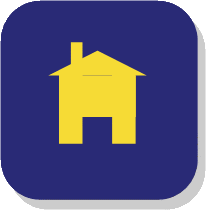
Home
|
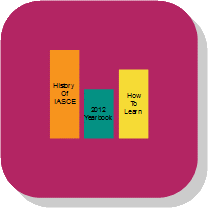
Resources
|

Conferences &
events
|

IASCE board
|
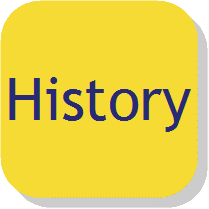
History of
IASCE
|
|
|
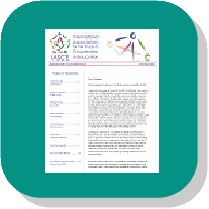
Newsletters
|

Discussion
group
|
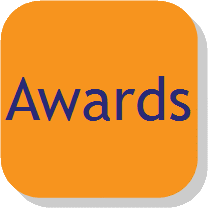
Awards
|

Contact us
|

Join IASCE
|
